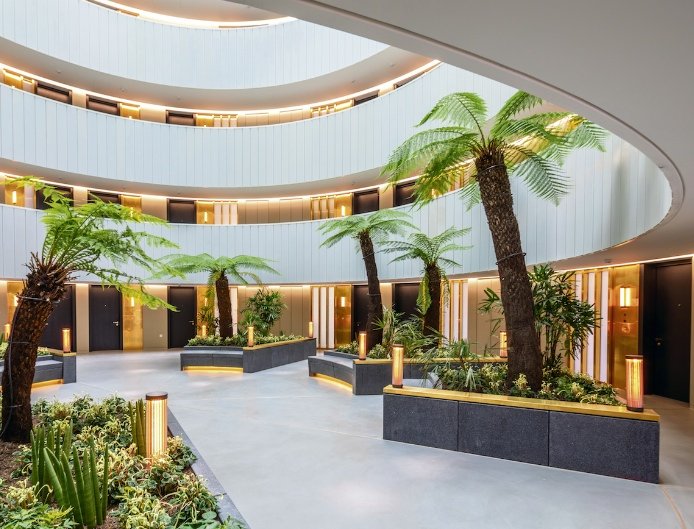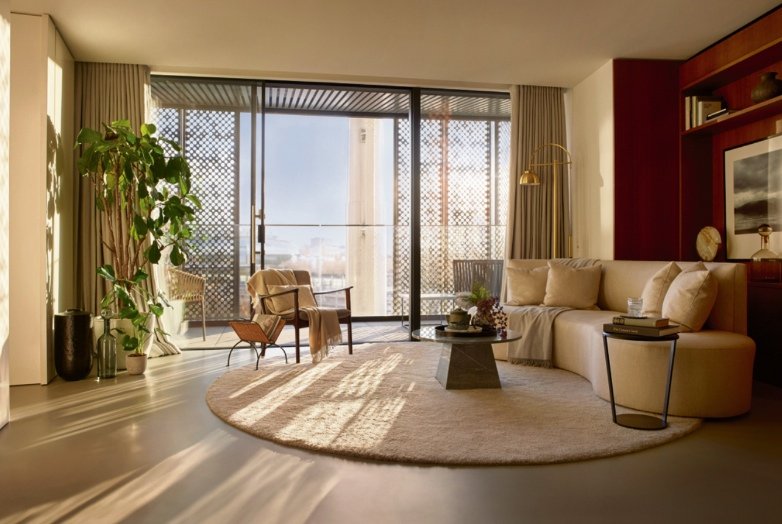Interiors: Laura Ivill explains why companies and five star hotels are splashing out on experts of the ancient Chinese art form
The year of the pig has arrived in the City of London. There was a time when only Chinese brokerages celebrated the tradition in the Square Mile, but now it’s a lively fixture across the City.
At Asian restaurant Mei Ume, stationed at the Four Seasons Ten Trinity Square hotel near Tower Bridge, which is owned by a Thai-Chinese company, huge mandarin trees bearing fruit sprout from a garden of daffodils to celebrate new year. The restaurant is the first London project for Hong Kong-based interior architect Ed Ng of AB Concept and the perfect spot to quiz him about that most curious of Chinese interior design theories: feng shui.
We’ve all heard of feng shui, but what on earth is it, really, and does it even work? Translated, feng shui means “wind-water” and it’s all about harnessing the energy force around and within us, qi, to enhance our environment. Originating in ancient China around 4,000 years BC, feng shui linked the building of dwellings to astronomy.

Inside the Gasholders conversion in King's Cross
But, like the flow of qi itself, feng shui has been interpreted and re-interpreted. In the home, I find it useful to think of it like this; what we surround ourselves with and the way rooms flow from one to another can create good energy, while awkward layouts and bland clutter create a bad atmosphere.
Ng is a designer at the top of his game the world over (his studio’s sumptuous monograph has just been published and you’ll need a sturdy coffee table to hold it). His view on feng shui is delightfully simple and succinct. “To me, it’s embedded in our culture, so it’s common sense,” he says. “For example, when you come into Mei Ume you see the screen, you don’t come directly into the open dining room. In China this is very common. We make the entrance more meandering, creating a layer of interest rather than just opening the door and thinking, ‘Oh, this is it?’ In hotel guest rooms, rather than coming in and looking straight at the bed, a meander gives a sense of privacy.”
Over in King’s Cross, when the developer, Argent, was looking at repurposing the former Gasholders as residential apartments, it called Simon Brown, feng shui consultant and author of nine books on the subject including the Feng Shui Bible. He charges from £195 to visit and advise on homes and businesses (though we’ve given you three tips for free below. You’re welcome).

The reception area in the Gasholders show apartment in King's Cross
“Feng shui is becoming more popular in the mainstream,” Brown says. “Most of my work is with large corporations who see the value in giving employers the best environments to work in.
“Research is confirming the benefits of using plants, colours, images, seating, views, natural light and layout in terms of emotional wellbeing, mental health and stress levels.”
Simon Brown’s feng shui tips
Curse: Spending most of our lives indoors?
Cure: Have as many indoor plants as possible. Bring nature into the home and office.
Curse: Lack of natural light and sun?
Cure: Use mirrors, reflective surfaces and white walls to reflect natural light deeper into the room.
Curse: Limited views?
Cure: Have large pictures of nature on the walls in homes and workspaces.